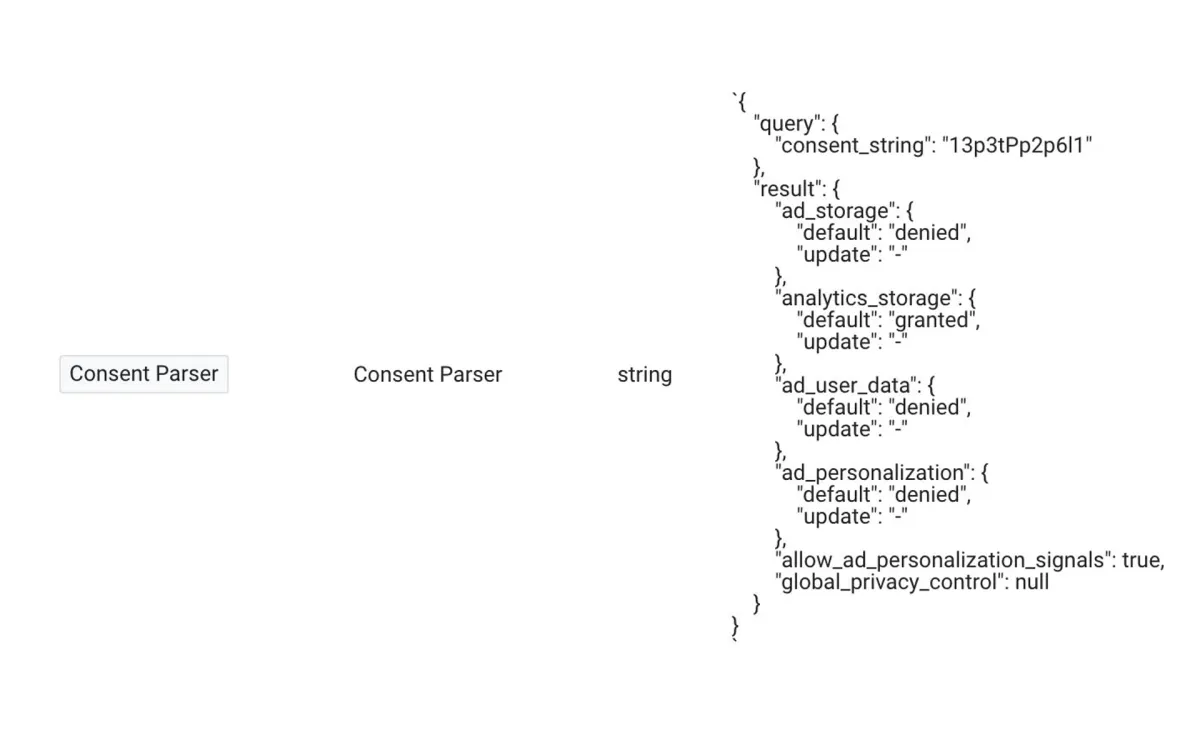
Denis Golubovskyi, founder of Stape, announced the creation of a new consent parser variable for server-side Google Tag Manager (sGTM) two days ago. This tool, designed to decode consent states, aims to simplify the complex landscape of data privacy compliance for marketers and developers.
The announcement, made on LinkedIn, has garnered attention from professionals in the digital analytics and marketing technology sectors. According to Golubovskyi, the new sGTM Consent Parser variable utilizes a service to decode the consent state, potentially streamlining the process of managing user consent for data collection and processing.
Server-side Google Tag Manager, a tool used by many organizations to manage marketing and analytics tags, has become increasingly important in the wake of stricter data privacy regulations and the phasing out of third-party cookies. The new consent parser variable addresses a critical need in this ecosystem, offering a more efficient way to interpret and act upon user consent choices.
The tool leverages an API endpoint to perform the decoding of consent strings. This approach could potentially reduce the complexity and processing time associated with consent management, allowing marketers to more quickly and accurately respect user privacy preferences.
Golubovskyi's announcement credits David Vallejo for the service underlying the new tool, highlighting the collaborative nature of developments in the marketing technology space. The consent parser variable is being developed and maintained by the Stape team under the Apache 2.0 license, indicating its open-source nature and potential for community contributions and improvements.
The release of this tool comes at a time when businesses worldwide are grappling with the challenges of complying with various data protection regulations, such as the General Data Protection Regulation (GDPR) in the European Union and the California Consumer Privacy Act (CCPA) in the United States. These regulations require businesses to obtain explicit consent from users before collecting and processing their personal data, making tools that can efficiently manage and interpret consent crucial for compliance.
The consent parser variable's integration with server-side Google Tag Manager could offer several advantages:
- Improved Performance: By moving consent parsing to the server side, websites may experience reduced load times and improved overall performance.
- Enhanced Privacy: Server-side processing can provide an additional layer of privacy by reducing the amount of user data exposed to client-side scripts.
- Greater Control: Marketers and developers can have more granular control over how consent data is interpreted and acted upon.
- Simplified Compliance: The tool could make it easier for organizations to comply with complex data protection regulations by providing a standardized way to decode and act on consent information.
- Potential for Better User Experience: Faster and more accurate consent processing could lead to a smoother user experience on websites and applications.
The GitHub repository for the consent parser variable provides additional technical details. The variable is primarily written in Smarty (75.5%) and JavaScript (24.5%), suggesting a blend of templating and functional programming approaches. This composition may allow for flexible implementation across different server-side environments.
While the tool shows promise, its adoption and effectiveness in real-world scenarios remain to be seen. Factors such as compatibility with existing systems, ease of implementation, and performance under various conditions will likely influence its uptake among marketing technology professionals.
The release of this consent parser variable reflects the ongoing evolution of marketing technology in response to changing privacy landscapes. As businesses continue to navigate the complexities of data-driven marketing in a privacy-conscious world, tools that simplify compliance and improve efficiency are likely to be in high demand.
Key points
- Denis Golubovskyi, founder of Stape, announced the creation of a new consent parser variable for server-side Google Tag Manager.
- The tool was announced on LinkedIn two days ago.
- It uses a service to decode consent states, potentially simplifying data privacy compliance for marketers.
- The consent parser variable leverages an API endpoint for decoding consent strings.
- The tool is being developed under the Apache 2.0 license, indicating its open-source nature.
- David Vallejo is credited for the service underlying the new tool.
- The variable is primarily written in Smarty (75.5%) and JavaScript (24.5%).
- The tool aims to address challenges related to data protection regulations like GDPR and CCPA.
- Potential benefits include improved performance, enhanced privacy, greater control, simplified compliance, and better user experience.
- The effectiveness and adoption of the tool in real-world scenarios remain to be seen.

